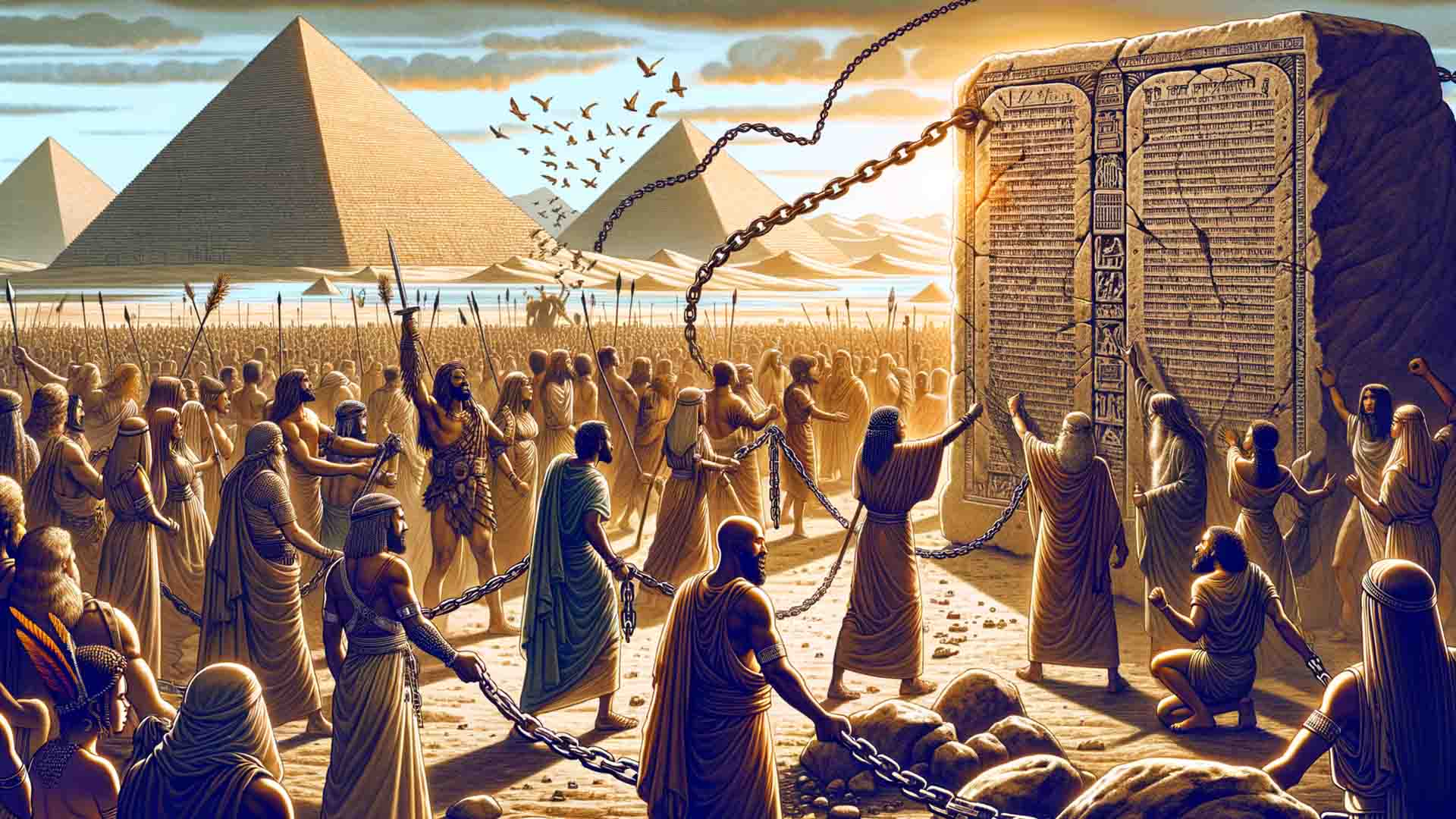The first commandment is found in:
“And God spoke all these words, saying, ‘I am the Lord your God, who brought you out of the land of Egypt, out of the house of bondage.’”
Bible. Exodus 20:1-2
Life Under the Chains of Slavery
To truly appreciate the depth of the first commandment, it’s essential to understand the context of ancient slavery. In Egypt, as well as in other ancient civilizations, slaves were often treated as property, not people. They labored tirelessly, faced cruel punishments, and lived lives devoid of freedom and choice. The physical and emotional toll was immense, stripping individuals of their dignity and humanity.
A Beacon of Hope and Liberation
The first commandament, spoken by God to Moses, wasn’t just about setting rules; it was a declaration of freedom. By identifying Himself as the Liberator from the clutches of Egyptian slavery, God highlighted the intrinsic worth of every individual. This wasn’t merely a command to recognize Him as the sovereign Lord but also served as a call against the oppression and dehumanization inherent in the system of slavery.
The underlying message here is one of inherent worth and the right to live free from oppression. It’s a revolutionary idea that has inspired countless individuals and movements throughout history, pushing for justice and human rights.
Reflecting on Today’s World
The echoes of the first commandment are still relevant today. We live in a world where various forms of oppression and exploitation continue to exist. While the chains might not be physical, the bondage of injustice, discrimination, and inequality persists. This commandment calls us to remember the importance of upholding the dignity and rights of every individual.
The Role of Faith
The first commandment encourages us to reflect on our relationship with the divine and our fellow humans. It challenges us to ask ourselves: What are the modern “Egypts” from which people need liberation? How can we, as individuals and communities, work towards a world that reflects the justice, compassion, and freedom that this commandment advocates?
In embracing the first commandment, we honor the principle that freedom and dignity are not just ideals but fundamental rights that every person deserves. It is a reminder to cherish our humanity and to strive towards a society where everyone can live free from the shadows of bondage.
In conclusion, the first commandment isn’t just about recognizing a deity; it’s a call to action. It urges us to fight against all forms of oppression and to champion the cause of freedom and human dignity. It reminds us that the essence of faith lies not just in worship but in how we treat one another, advocating for a world free from bondage in all its forms.

